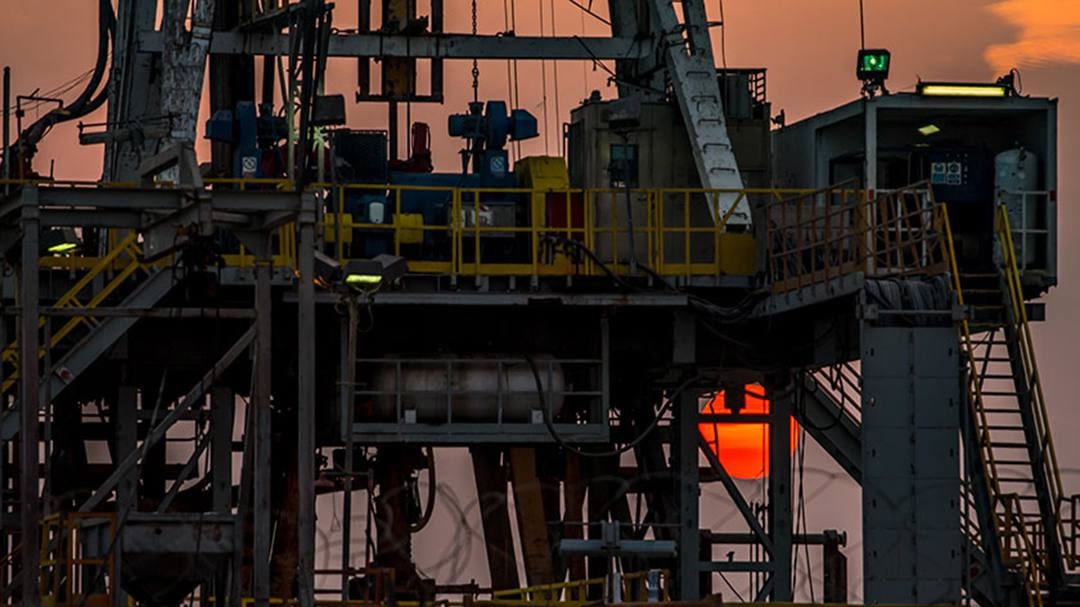The US Federal Reserve changed its hawkish stance in the March Fed meeting by signaling no rate hikes this year. Moreover, even US President Donald Trump and his top economic advisor Larry Kudlow have been calling on the Fed to cut interest rates these days.

File photos: CGTN
However, to change the direction for its monetary policy, the Fed needs to ensure that inflation won't rise significantly. Nevertheless, there is considerable upward momentum in energy prices, one of the most influential factors for inflation.
The international market has recorded a noticeable increase in oil prices so far this year. The average oil price in January was $56.6 per barrel, up by $2.6 or 4.8 percent from $54 per barrel in December 2018. The increase in the entire first quarter was even sharper. The price for the representative West Texas Intermediate crude oil jumped from $47.96 on January 4 to $61.59 per barrel on April 1, indicating a gain of 28.4 percent in the first quarter.
While the Trump administration may hope that energy prices will maintain at low levels, Saudi Arabia aims to push oil prices to at least $70 per barrel by slashing production. In February, Jihad Azour, director of the Middle East and Central Asia Department of the IMF, said that Saudi Arabia would need oil priced at $80 to $85 per barrel to balance its budget this year. According to information provided by industry sources, Saudi Arabia's first goal is to raise the oil price to $70 per barrel by reducing production, even at the cost of losing some market share.
As for Iran, sanctions imposed by the Trump administration on the country have already curbed its production and exports of oil and gas, and such sanctions may be further tightened. Since May 2018, US oil sanctions against Iran have removed about 1.5 million barrels of Iranian oil exports from the market. On April 8, Trump designated Iran's Islamic Revolutionary Guard Corps as a terrorist organization, the first time the US has named another nation's army as a terrorist group. Iran's Supreme Council quickly responded by designating US forces a terrorist organization. With the escalating frictions between the two, it is very likely that the US will tighten oil sanctions against Iran, thus further reducing the supply in the global oil market.
In Venezuela, economic difficulties have crippled the country's oil production and export capacity, despite having the largest proven oil reserves in the world. Political turmoil will further disrupt the country's oil production and exports.
As the largest oil producing and exporting country in North Africa, Libya is now on the brink of a civil war, which may also affect its oil output.
In the meantime, a power struggle in Algeria has cast shadows over the oil and gas market. Over the past three years, the daily output of Algerian crude oil maintained around 1 million barrels a day. Given this, the political turmoil in Algeria may have a more significant potential impact on the global energy market than the Libyan war.
Algeria's President Abdelaziz Bouteflika resigned after six weeks of mass protests, but his resignation may be just the beginning of a bigger mess.
Since 2014 when oil prices collapsed, the inflationary pressure in the US has been quite limited. In February this year, the country's CPI rose by 0.2 percent from the previous month, the first increase in four months. If anything, the figure indicates that inflationary pressure has been growing, due in part to the rebound in energy prices this year. It is generally expected that the March inflation data will further reflect the influence of rebounding energy prices. If the potential impacts of the production cuts, sanctions, and turmoil are fully released, and oil prices continue to climb above the level of $70 or even $80 per barrel, the US economy may face considerable inflationary pressure, thus adding complications to the Fed's interest rate decision.
Likewise, China is already the world's largest importer of oil and natural gas, and thus its domestic inflation may see a bigger impact from changes in oil prices in the international market compared with the US. Therefore, we should fully recognize this factor when making monetary policy decisions.
The author is a research fellow with the Chinese Academy of International Trade and Economic Cooperation under the Ministry of Commerce.


